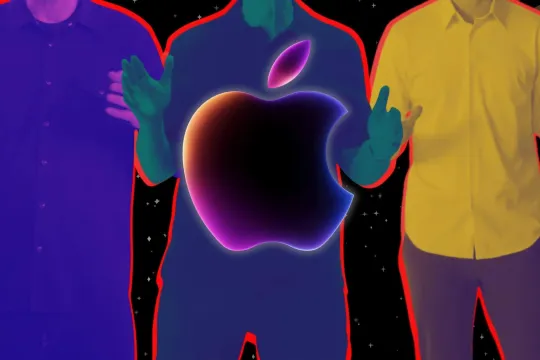
Credits: Lucasfilm
Every year at the beginning of May, geeks around the world start feeling euphoric because the start of this month is traditionally celebrated as a holiday for all fans of the space saga "Star Wars".
I would be surprised by readers of this post who don't know the history of the origin of this holiday, but I still prefer to remind them about it. The reason why May the 4th is celebrated as Star Wars Day lies in a fun play on words! It stems from the famous Star Wars phrase "May the Force be with you". Fans cleverly turned this into "May the Fourth be with you". So, there's no official connection with the Star Wars universe itself, but it has become a beloved tradition among fans to celebrate this date.
The first film of the saga was also released in May, and the official release date of May 25, 1977, is known as the release date of the original film “Star Wars. Episode IV: A New Hope”. There have been attempts to mark this day as the official Star Wars Day, but since 2008, this day has been celebrated as "Geek Pride Day", which deserves a separate post. Lucasfilm and Disney now celebrate Star Wars every year on May 4th, and over the years most manufacturers and large retailers have joined in the celebration by releasing updated collections for geek fans.
Who Said This Phrase First?
Who is the hero to whom "May The 4th Be With You" owes its popularity? These iconic words actually have an unexpected first utterance in the Star Wars universe. It wasn't a Jedi knight or even the smuggler we often associate it with.
This line was first spoken by General Dodonna in "Star Wars: Episode IV — A New Hope." He delivers it as a farewell to the pilots who are about to attack the Death Star. Soon after, Han Solo repeats it to Luke Skywalker. It moment starts at 56 seconds in the video below.
Other Secret Jedi Knights Who Used It
Although the phrase "May the Force be with you" is associated with Star Wars Day, its use was not always related to the franchise: the first recorded use of the word "May the Fourth be with you" took place on May 4, 1979, when Margaret Thatcher was congratulated on her election victory, but the first official celebration of Star Wars Day happened much later. The Toronto Underground Cinema is considered the venue of the first official Star Wars Day, which was determined in 2011. This event included a costume contest, movie marathons, and fan-created content.
Based on Wikipedia, "May the Fourth be with you" has transcended its initial pop culture origins to become universally recognized: since its first mention, this phrase has been used in such official places as the UK Parliament and academic books like "The Science of Star Wars" by Jeanne Cavelos. This manifestation of fandom is echoed by figures such as Boris Johnson and observed in various forms from sports teams to astronauts aboard the International Space Station, demonstrating the universal appeal and festive spirit of Star Wars among enthusiasts worldwide.
What Is the Correct Answer?
If we search in Star Wars episodes, there are several ways to respond to "May the Force be with you":
- The more classic one, which has been encountered most often over several decades: "And with you as well." It's a standard response that reflects the intention of a kind of blessing.
- Inclusive: "May the Force be with us all." This spreads the blessing to everyone around, not tying the Force exclusively to the Jedi.
- Confident and in my opinion - the only correct: "Always." This short response shows that you trust in the Force.
You may disagree with me and choose any response that seems most natural to you, after all, truth is born in dispute, isn't it?
So Happy Star Wars Day and May the 4th Be With You.., Always!
You Also May Interested
The Most Iconic Star Wars Spaceships & their Lego Copies
We compare iconic Star Wars spaceships to their LEGO versions in a compilation. Enjoy Star Wars Day with a closer look at the saga's beloved vehicles.
Detail-oriented editor aiming for excellence. I keep up with web dev, gaming, and tech trends in my free time and write about



